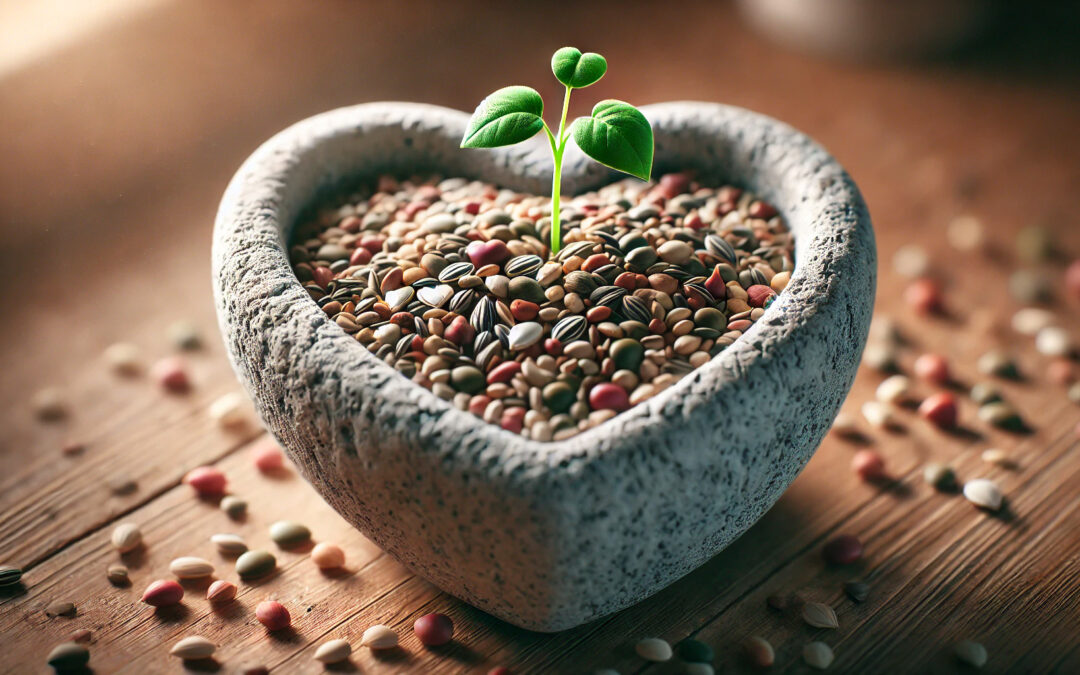“Jesus answered and said unto him, Verily, verily, I say unto thee,
Except a man be born again, he cannot see the kingdom of God.”
(John 3:3)
Over 2000 years ago in Jerusalem a highly respected Pharisee by the name of Nicodemus met with Jesus secretly under the cover of darkness. Nicodemus was most intrigued by both the teachings and the miracles performed by this one who called himself the Messiah. Driven by the weight of his own soul’s inquiries, curiosities, and an intense need to understand, Nicodemus went looking for answers from the very source Himself.
Christ’s response to this respected religious leader’s burning question is recorded in John 3:3 and contains one of the Lord’s most profound teachings: “Except a man be born again, he cannot see the Kingdom of God.”
Imagine the profundity of these words to this seasoned Jewish leader who had been taught to place faith in rituals, lineage, and laws. As a result, this most unusual answer from Christ only ignited additional queries and quandaries from Nicodemus. “But how can a man be born when he is old? Can he enter a second time into his mother’s womb and be born?” His lack of understanding was as profound as Christ’s initial response, observed by his rhetorical example of how that process of being “reborn” simply would not work.
The conversation that ensued is laden with spiritual mystery for it involves the divine working of God Himself, through the means of His Word and His Spirit, to germinate a spiritual metamorphosis of the soul, the essential requisite to experiencing the Kingdom of God.
The term “Kingdom of God” is not to be understood in a singular, linear fashion, for Scripture paints this kingdom in dual shades. The first, the Kingdom of Grace, denotes Christ’s spiritual dominion on earth where hearts are won for God, where lives are transformed by His love, and where the seed of faith takes root. This ‘rebirth’ implies a transformative regeneration, bringing individuals into alignment with God’s will by way of the New Covenant.
The second shade, the Kingdom of Glory, represents the heavenly abode where those transformed souls will ultimately dwell. It is an inheritance not guaranteed by mere recognition of God or adherence to rituals but rather is given to those whose lives have been thoroughly changed by the transformative work of God’s Word and His Spirit.
So when Jesus spoke of being ‘born again,’ He is referencing this spiritual regeneration, a transformation so deep and thorough that it parallels the process of birth. Just as an infant enters the world as a new physical being, so must our spirits be born to new spiritual life.
But why the analogy of birth? Because it signifies a totally new beginning. A rebirth is not a mere change; it’s a metamorphosis. It’s about laying aside the old self and adopting a new nature – one that aligns with the divine will. As Jonathan Dickinson rightly said, “without regeneration, salvation is unattainable.”[1]
The unregenerate, those who haven’t experienced this profound transformation, remain blind to Kingdom truths, like someone trying to understand a language they’ve never learned. Because apart from this rebirth, as Christ affirms, you cannot experience either the Kingdom of Grace or Glory.
As we ponder these truths, let them be a catalyst, urging our souls to seek that rebirth, to strive for that profound inner change and to do our part to ensure our place in both the Kingdom of Grace and the eternal Kingdom of Glory.
Contemplations:
- Seeking Genuine Understanding: Just as Nicodemus approached Jesus with a sincere heart, desiring to understand the profound mysteries of faith, I too should evaluate my spiritual journey. Often, my approach to faith is clouded with preconceived notions, cultural biases, and traditions passed down through generations. Do I regularly take the time to sift through these layers, seeking the pure, unadulterated truth of God’s Word? Am I open to the transformative power of God’s teachings, even if they challenge my deepest-held beliefs?
- The Interconnected Dual Kingdoms: The Kingdoms of Grace and Glory, while distinct in their attributes, are intrinsically linked. One serves as the foundational phase, nurturing my spirit for the next. This duality prompts reflection on my spiritual priorities. Do I only anticipate the promise of a heavenly reward? Or do I genuinely seek a daily transformation, a preparation, aligning my life with God’s purpose and cherishing the Kingdom of Grace while on earth?
- The Profound Nature of Rebirth: Spiritual rebirth, as portrayed in Christ’s teachings, signifies more than an external change; it represents a deep metamorphosis of the soul. It’s easy for me to become complacent, contenting myself with mere outward displays of religiosity. But how often do I pause to gauge the authenticity of my spiritual transformation? Is my heart truly reborn, bearing fresh perspectives and desires aligned with God’s will, or do I remain shackled by my old self?
- Embracing the Urgency of Salvation: The gravity of missing out on God’s Kingdom cannot be overstated. Every choice I make, every action I undertake, carries eternal implications. Amid the hustle and bustle of daily life, am I genuinely aware of the weight of my spiritual decisions? Do I live each day with an acute consciousness of eternity, prioritizing my spiritual well-being and striving to ensure my place in God’s everlasting Kingdom?
Further References for John 3:3:
John 1:13; Gal. 6:15; Rom. 6:3; Matt. 3:2
[1] Jonathan Dickinson, The Nature and Necessity of Regeneration, (Crossville, TN: Puritan Publications, 2024) 3.


